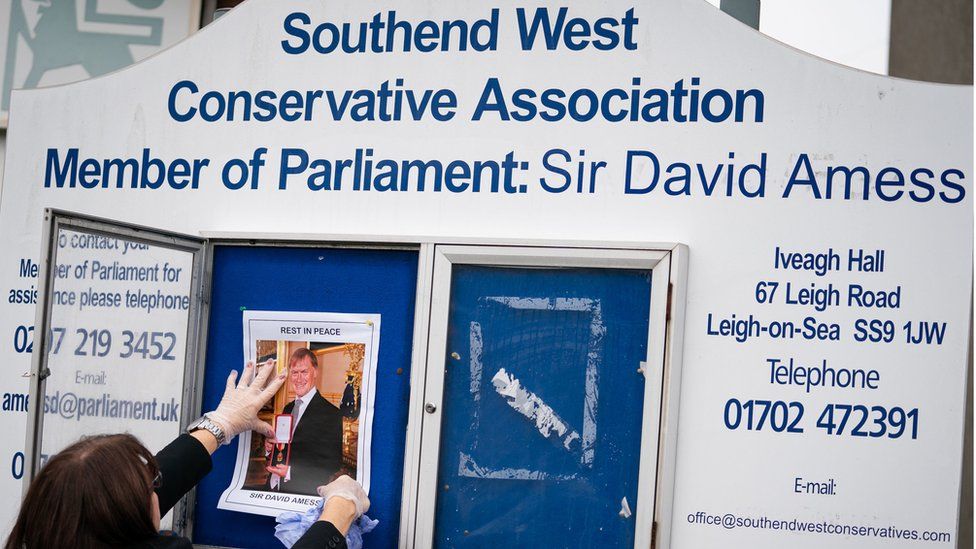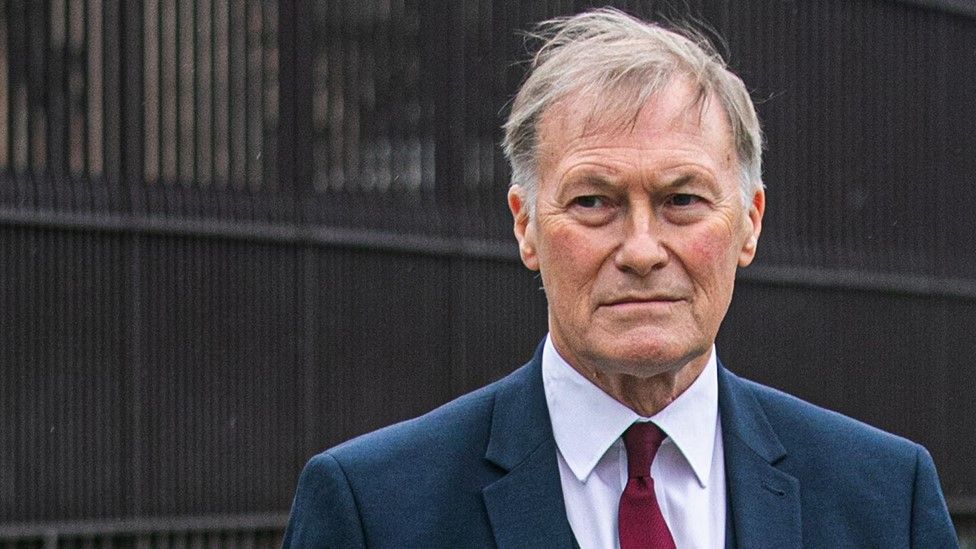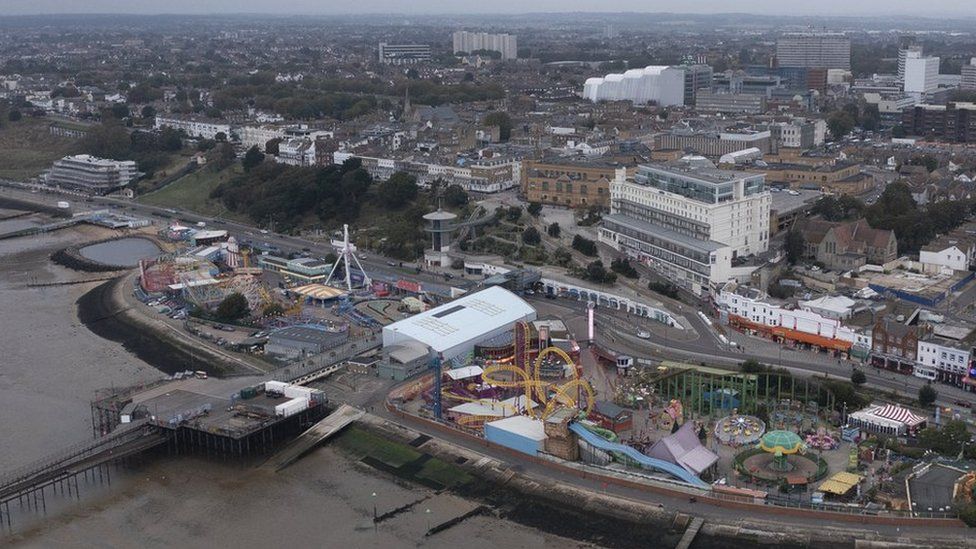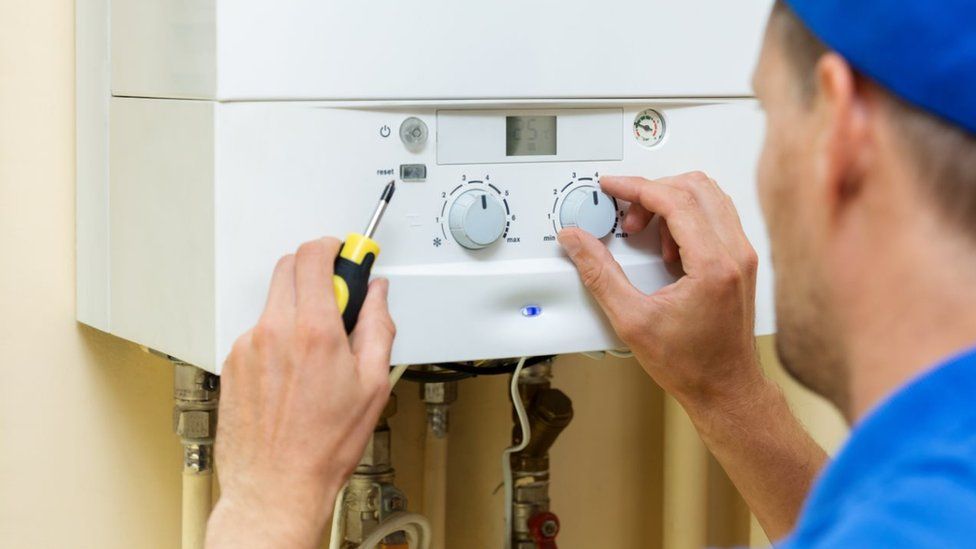Business Secretary Kwasi Kwarteng has insisted there will not be another national lockdown after an NHS leader warned the PM that 'Plan B' coronavirus restrictions must be enforced immediately to prevent the UK "stumbling into a winter crisis".
NHS Confederation chief executive Matthew Taylor has urged the government to bring back certain measures, including mandatory face coverings in public places, telling Sky News: "The overwhelming evidence is that we do need to act."
'Overwhelming evidence' UK needs to act as daily deaths rise to highest level since March
His remarks came as the UK recorded 223 COVID-related deaths on Tuesday - the highest number of daily fatalities since 9 March.
But asked by Kay Burley on Sky News whether the UK could be facing another lockdown, Mr Kwarteng said: "I would rule that out."
How would Plan B tackle rising coronavirus cases - and when could it come into force?
Speaking on Wednesday morning, the business secretary added: "I think the conversation about restrictions on travel, restrictions on more lockdowns is completely unhelpful."
Asked whether more travel restrictions could be brought back in, he told Burley: "No, I don't think so."
Challenged on the fact that the government said similar last year before further measures were introduced, the business secretary said: "This time last year we didn't have the vaccine."
"We don't want to go back into lockdown and further restrictions," Mr Kwarteng said.
Responding to the business secretary's remarks, Mr Taylor warned stricter measures may need to be implemented in the future if "some inconveniences" are not brought back in now.
"We know that things are almost inevitably going to get worse," he told Sky News, adding that the government's failure to act is "frustrating".
Asked what 'Plan B' involves, Mr Taylor said it includes "requiring people to wear masks in crowded places, discouraging unnecessary indoor gatherings, working from home if you can".
He added: "I don't think the measures you've just described - closing schools or banning international travel - are necessary at this stage.
"And that is part of the argument - if we can do those things which are inconvenient but allow life to go on then we may not have to do things which will have a bigger impact."
A further 43,738 coronavirus cases were also reported in the latest 24-hour period, and on Monday, the UK saw the highest number of new infections since mid-July.
Although Downing Street has said it is keeping a "very close eye" on rising case rates, a spokesperson warned the prime minister has "absolutely no plan to introduce Plan B".
If this strategy was enforced, people could be asked to work from home again and vaccine certificates would be required for nightclubs.
Last month, Health Secretary Sajid Javid also confirmed that lockdowns would be considered as a "last resort" if this plan did not work.
Mr Taylor said the NHS is now preparing for what could be "the most challenging winter on record", and encouraged Britons to support the health service by "behaving in ways that will keep themselves and others safe".
Warning that the nation's recovery from the pandemic could be put at risk if pre-emptive action is not taken, he added: "The government should not wait for COVID infections to rocket and for NHS pressures to be sky high before the panic alarm is sounded."
Boris Johnson's official spokesman has previously said that Plan B would only be activated if there was a "significant risk of the NHS being overwhelmed".
But No 10 says that the UK is not at this point, and the vaccine rollout means "the levels we are seeing in both patients admitted to hospital and deaths are far lower than what we saw in previous peaks".
Professor Neil Ferguson - a leading member of the Scientific Advisory Group for Emergencies - said yesterday that he thinks Plan B could be implemented in England this winter, but a return to the type of lockdown seen back in January is unlikely.
Back in January, the UK's chief scientific adviser Sir Patrick Vallance warned "the lesson is go earlier than you think you want to, go a bit harder than you think you want to, and go a bit broader than you think you want to in terms of applying restrictions".
The UK now has one of the highest weekly rates of new reported cases in the world, and vaccination rates have fallen behind other European countries.
Data shows that approximately 67% of the population has received two doses of a COVID-19 jab, compared with 75% in Denmark, 79% in Spain and 86% in Portugal.
While the weekly rate of new reported cases stands at 24 per 100,000 people in Spain and 48 per 100,000 people in France, this figure currently stands at 463 per 100,000 people in the UK.
Labour's Bridget Phillipson told Sky News the government should be stronger in its messaging on mask wearing in closed spaces.
"It would be better if we took early steps to stop things from escalating," the shadow chief secretary to the Treasury said.
In other developments, the government has said it is also keeping a "close eye" on a new mutation of the Delta variant, which has been called AY.4.2 by scientists.
The UK Health Security Agency warned this variant is now making up 6% of new cases and could be up to 10% more transmissible.
Adam Finn, a professor of paediatrics at the University of Bristol and a member of the Joint Committee on Vaccination and Immunisation (JCVI), says the "very rapid rise" in the number of cases in the UK is a "reflection of how people are behaving".
He told Sky News "nobody" appears to be wearing masks inside anymore, adding he doubts people are doing lateral flow tests.
Follow the Daily podcast on Apple Podcasts, Google Podcasts, Spotify, Spreaker
Professor Finn said: "There's a general sense that life's gone back to normal and as a result the infection is being passed around."
He added that unless there is a "clear message put out that we've got more infection going on now than at any point in the pandemic", despite fewer hospitalisations, people are "not really going to take precaution".
Meanwhile, Health Secretary Sajid Javid said that the government is "ramping up" its vaccination programme in a bid to encourage eligible children to get jabbed.
He added children aged between 12 and 15 would be able to use the national booking service to secure their COVID-19 vaccines "to make the most of half-term next week".
https://news.google.com/__i/rss/rd/articles/CBMihwFodHRwczovL25ld3Muc2t5LmNvbS9zdG9yeS9jb3ZpZC0xOS1lbmZvcmNlLXBsYW4tYi1yZXN0cmljdGlvbnMtaW1tZWRpYXRlbHktb3ItdWstcmlza3Mtc3R1bWJsaW5nLWludG8td2ludGVyLWNyaXNpcy1wbS13YXJuZWQtMTI0Mzg4ODjSAYsBaHR0cHM6Ly9uZXdzLnNreS5jb20vc3RvcnkvYW1wL2NvdmlkLTE5LWVuZm9yY2UtcGxhbi1iLXJlc3RyaWN0aW9ucy1pbW1lZGlhdGVseS1vci11ay1yaXNrcy1zdHVtYmxpbmctaW50by13aW50ZXItY3Jpc2lzLXBtLXdhcm5lZC0xMjQzODg4OA?oc=5
2021-10-20 06:48:43Z
CBMihwFodHRwczovL25ld3Muc2t5LmNvbS9zdG9yeS9jb3ZpZC0xOS1lbmZvcmNlLXBsYW4tYi1yZXN0cmljdGlvbnMtaW1tZWRpYXRlbHktb3ItdWstcmlza3Mtc3R1bWJsaW5nLWludG8td2ludGVyLWNyaXNpcy1wbS13YXJuZWQtMTI0Mzg4ODjSAYsBaHR0cHM6Ly9uZXdzLnNreS5jb20vc3RvcnkvYW1wL2NvdmlkLTE5LWVuZm9yY2UtcGxhbi1iLXJlc3RyaWN0aW9ucy1pbW1lZGlhdGVseS1vci11ay1yaXNrcy1zdHVtYmxpbmctaW50by13aW50ZXItY3Jpc2lzLXBtLXdhcm5lZC0xMjQzODg4OA



















